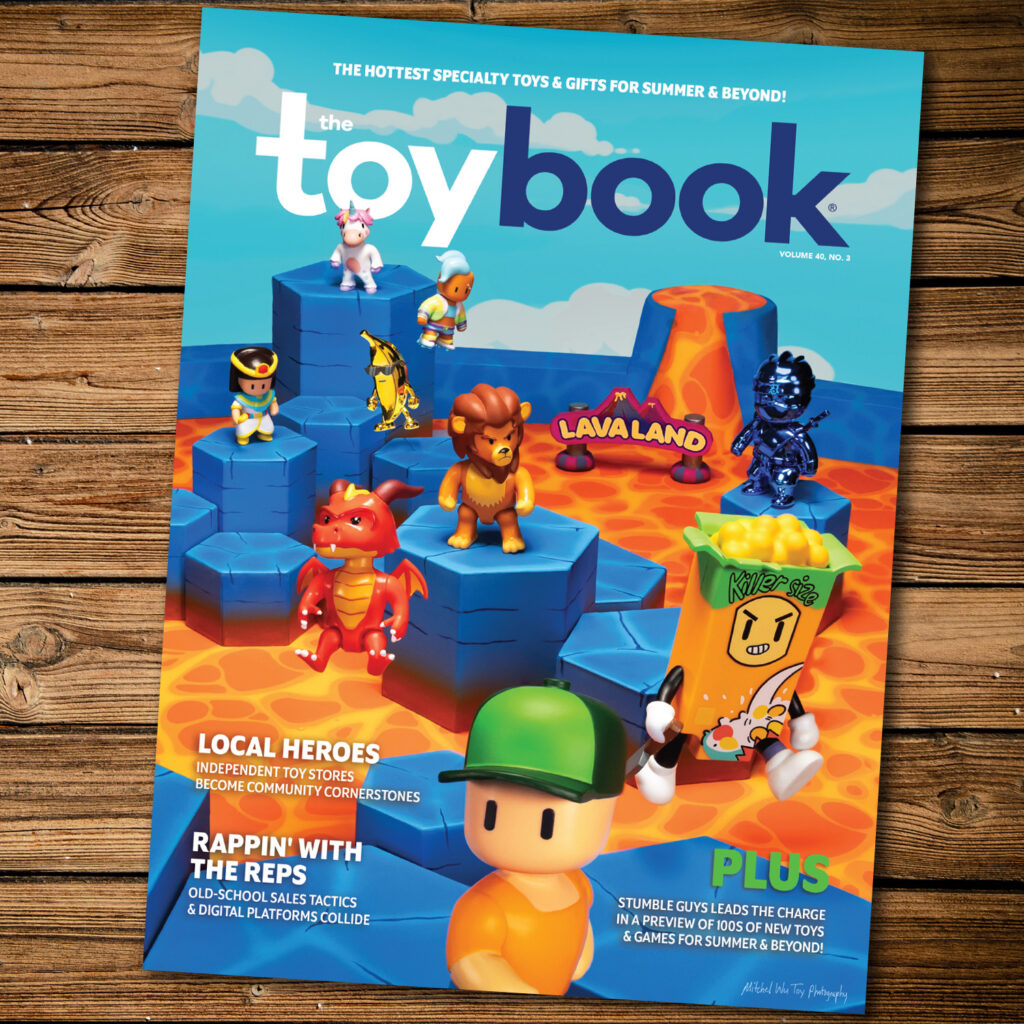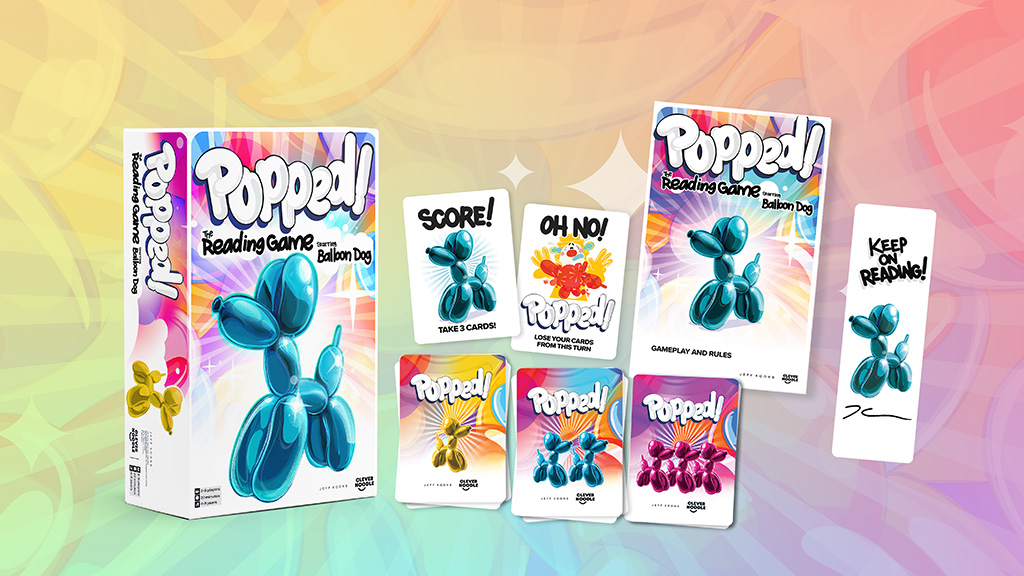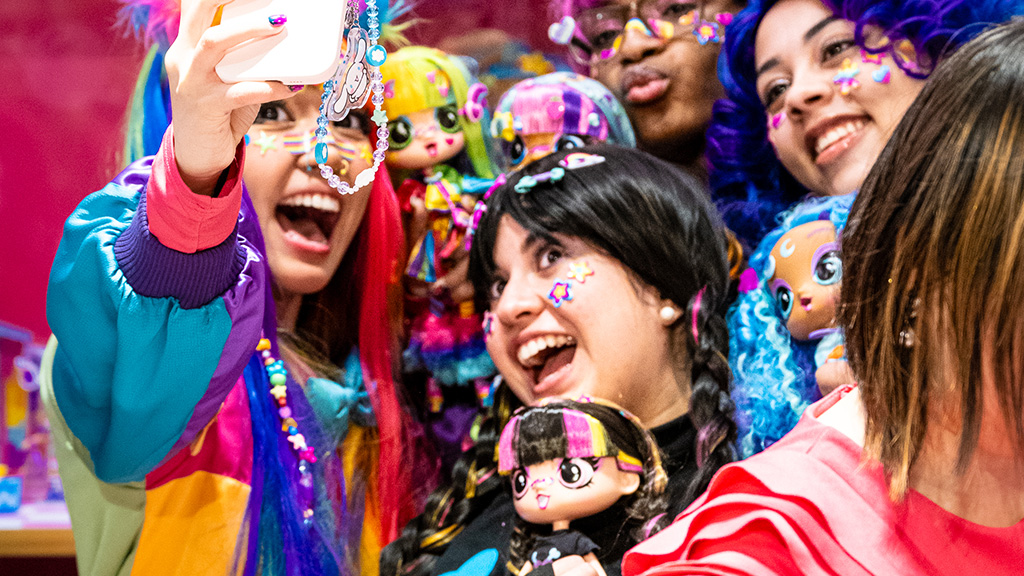When a consumer is in the market for a game that will help their little one with reading, they’ll find many products — some fun and some quite dull — in the toy department. What they may not find, however, is a game that will teach their child how to read.
Enter Jacquelyn Davis, a Washington D.C.-based alumna of Georgetown Law.
A former high school teacher, Davis is heavily invested in literacy education, having subsequently co-founded both a charter school and a national training organization for principals. But Davis was dealt a hand of irony: Her own son was years behind in reading. Davis scoured game aisles and e-commerce sites for anything that would make learning to read painless for her son, who has dyslexia, yet game after game failed to yield results. So Davis procured every book she could find on effective literacy teaching methods, grabbed some art supplies, and got to work.
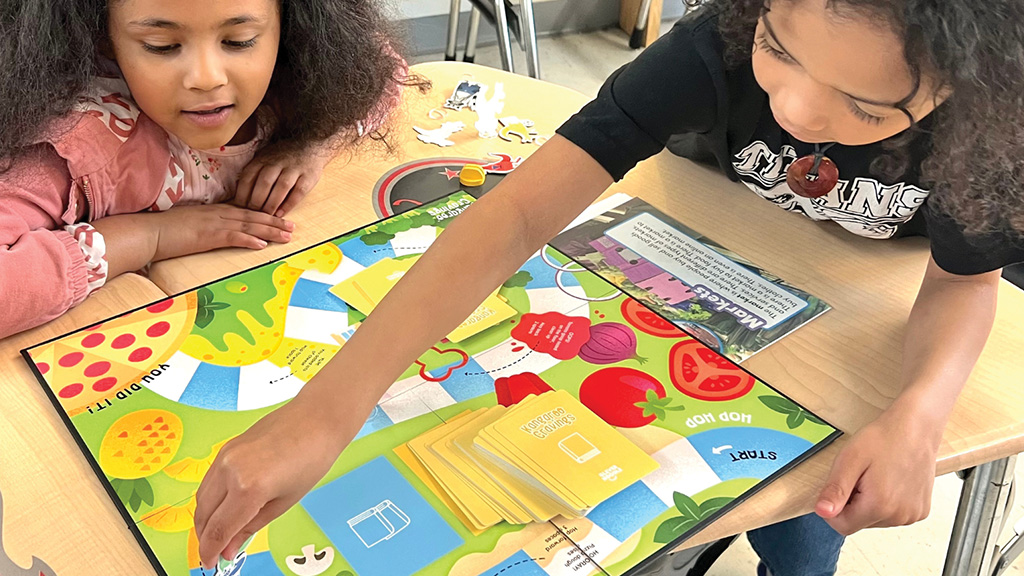
This DIY journey was the genesis of Davis’ startup company Clever Noodle. The company’s introductory title, Kangaroo Cravings, is an evolution of the prototype games she made for her son with some cardboard and a dream.
Though the warring theories on the best way to make kids literate have complexities, a largely discredited mode of teaching, called Balanced Literacy, still dominates classrooms and game aisles, while the multi-sensory mastery of high-frequency sight words, the concept Davis has utilized in gameplay, is becoming the standard across the country.
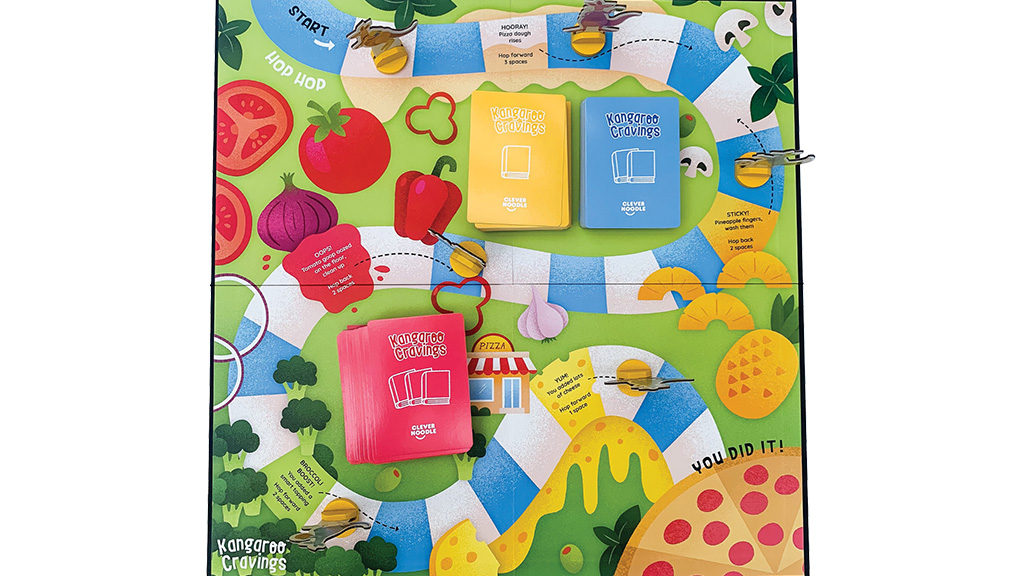
Through testing with more than 100 children in 44 classrooms, and by consulting literacy experts in the process, Davis made learning the building blocks of literacy fun and effective. “I’m so excited to step into that need, to that vacuum in the market because we need products, games, toys that make it extremely fun to learn to read and to — most importantly — practice your reading,” she says.
One expert Davis consulted is Laurie Moloney, a certified academic language therapist with an impressive linguistic resume. Moloney guided Clever Noodle’s choice of phonetically irregular words, physical actions, and other pivotal components for Kangaroo Cravings’ gameplay. “Kangaroo Cravings is different from other reading games in that it is competitively played, requires the physical engagement of the players, and teaches important concepts involving letter patterns and common word pronunciations,” she explains.
Moloney’s motivation, which goes beyond her frustration at the way reading is typically taught in the U.S. (“In effect, teachers are teaching reading as though English were a logographic language like Mandarin.”), is rooted in empowering kids, especially kids of color and kids from low-income families, to discover the joy and power of reading. “Society often ascribes low levels of literacy to low socioeconomic status and treats the phenomenon like death and taxes: inescapable,” she says. Wielding the power of games is one way to combat this fallacy.
With this mindset, and experts in tow, Davis has also ensured the packaging for Kangaroo Cravings and its noun-focused expansion pack is beautiful and plastic-free. And, with her pint-sized team and an unlikely mentorship from Jason Schneider at Gamewright, Davis has set upon the path of changing the educational gaming industry.
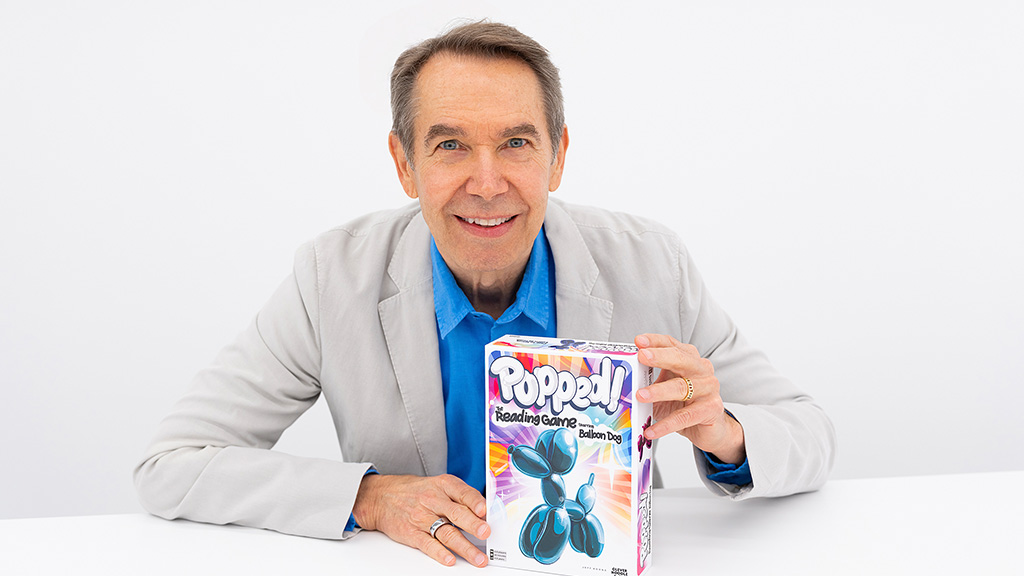
Clever Noodle’s next move? Expanding its roster of games by collaborating with big names in the art world.
One such new game, Popped!, debuted in April. A second learn-to-read game, Popped! is a collaboration with legendary artist Jeff Koons. “Reading opens the door to the world. I’m excited to connect my art with proven reading science,” Koons is quoted on the Popped! info page. There are also plans for a graffiti-themed game aimed at older kids in collaboration with artists like Lady Pink.

This expansion, rather than detracting from the heart of the company, reiterates it. “I saw [my son’s] life change from a non-reader to a reader. And so I’m a mom on a mission not just for my child, but for every child,” Davis says. “If I can be part of that national effort, and then eventually global, it’s from a place of passion and mission.”
A version of this feature was originally published in The Toy Book’s 2024 Specialty Toys & Gifts Issue. Click here to read the full issue! Want to receive The Toy Book in print? Click here for subscription options!
